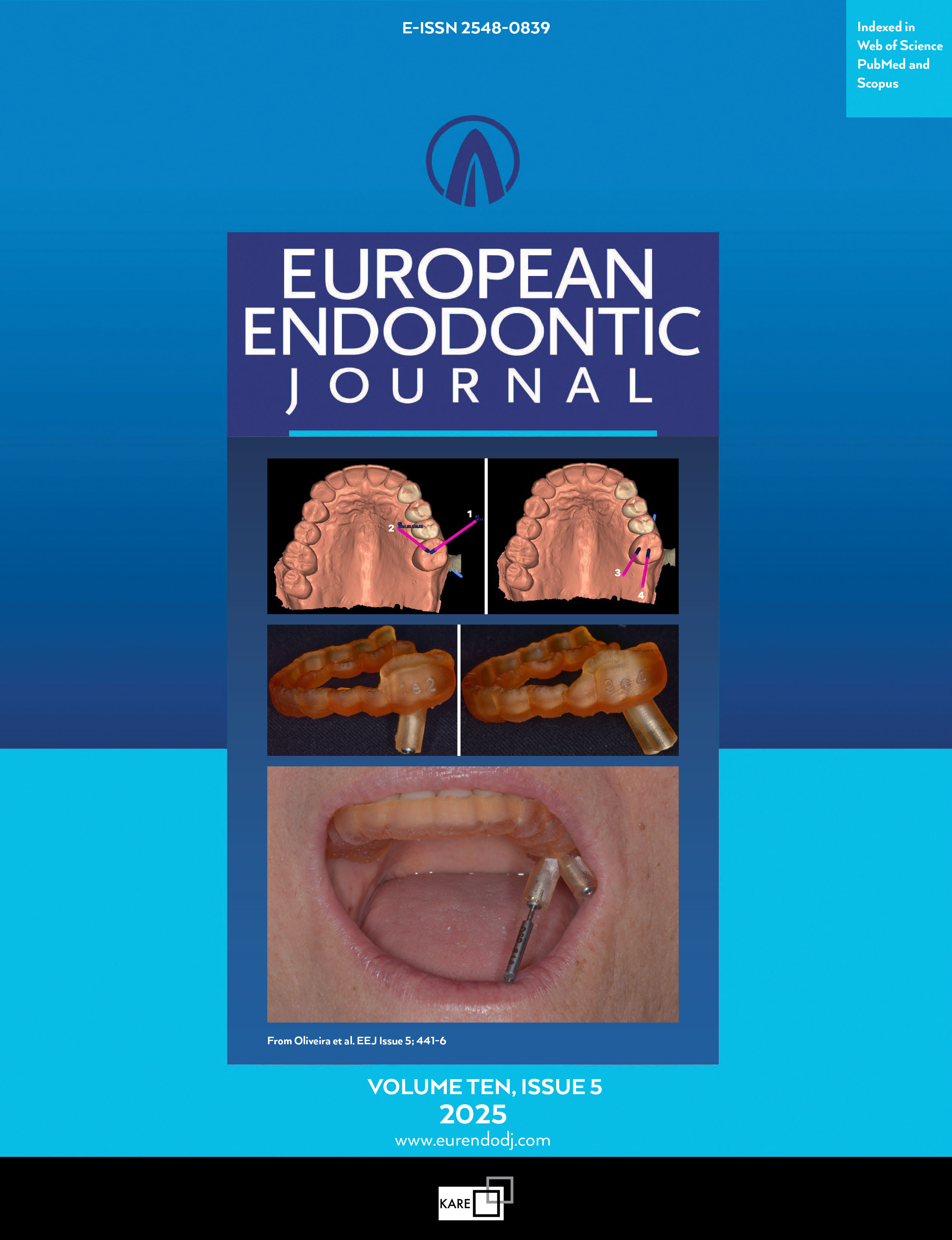Metrics
2024 IMPACT FACTOR
5 year Impact Factor
Eigenfactor Score
2024 CiteScore
Journal Citation Reports
(Clarivate 2025, JIF Rank)
Effects of Procedural Errors on Root Canal Treatment Outcomes: A Retrospective Cohort Study of Cases Treated by Sixth-year Dental Students
Sirashat Teerawanitsan, Kanet Chotvorrarak, Titalee JirathanyanattDepartment of Operative Dentistry and Endodontics, Faculty of Dentistry, Mahidol University, Bangkok, ThailandObjective: This study assessed the effects of various types of procedural errors arising from root canal instru-mentation on initial root canal treatment outcomes.
Methods: This retrospective cohort study analysed data from sixth-year dental students performing initial root canal treatment on mature permanent molars between 2015 and 2019. Treatment records and radio-graphic images were reviewed to identify procedural errors during root canal instrumentation and other po-tential confounding factors affecting treatment outcomes. Subsequently, uni- and multivariate logistic regres-sion analyses were performed to identify predictors of treatment outcomes.
Results: A total of 142 teeth (343 roots) met the inclusion criteria, with an average follow-up period of 35.84±16.72 months. According to stringent assessment criteria, overall healing rates were 72.5% for the teeth (103 of 142) and 80.5% for the roots (276 of 343). Multivariate logistic regression analysis revealed that among the procedural errors considered, only errors related to under-instrumentation (root canal deviation and lat-eral perforation) were significant predictors of treatment outcomes (p=0.002).
Conclusion: Root canal treatment outcomes are significantly influenced by procedural errors, particularly those affecting the root canal preparation length. Procedural errors related to under-instrumentation can compromise root canal disinfection and increase the risk of post-treatment disease by up to eightfold.(EEJ-2025-01-010)
Manuscript Language: English
(184 downloaded)


